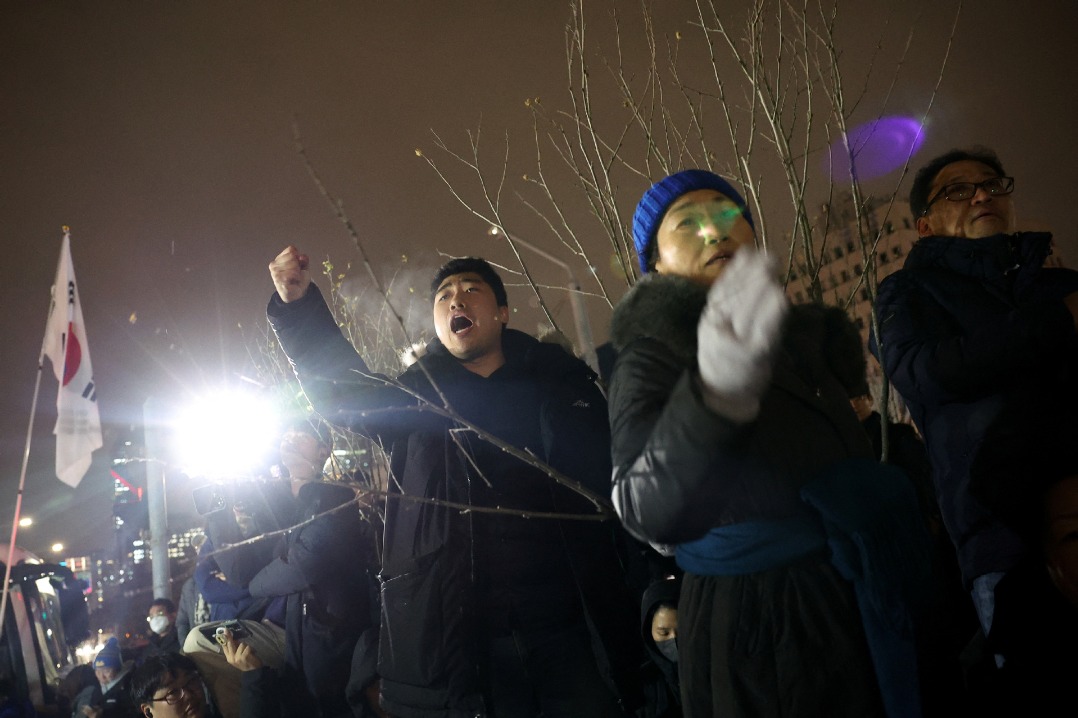US free trade advocates warn against tariff hikes


Some free trade advocates in California and Nevada in the United States are taking a wait-and-see approach regarding another potential round of tariffs of the second Donald Trump administration.
They called for the US to seek constructive engagement and mutual understanding with other countries, as the costs of tariffs ultimately will be borne by domestic consumers.
Trump recently said he is considering raising tariffs on Canada and Mexico by 25 percent and on China by 10 percent.
During his presidential campaign earlier this year, he floated a potential tariff of 60 percent or higher on all imports from China.
Bob Underwood, a Hollywood producer and writer, spoke of the misconceptions around tariffs and their impact on consumers.
"The frustrating thing about tariffs is that most people don't understand how they work," he told China Daily. "They think 'Oh, we're charging China, we're charging Mexico'. And it's not that way at all. It's charging the people who want to import these products, so the cost gets passed to people."
Underwood said that tariffs are not effective punitive measures against other countries, as the costs ultimately are borne by domestic consumers.
"I'm much more an advocate of free trade because I think the more you're trading with one another, the more likely you are to see things from their point of view," he said, adding that he hoped Trump's rhetoric would soften in reality.
From Hollywood to local governments, voices across the US West Coast are advocating for policies that promote international collaboration, reduce trade barriers and foster mutual trust.
Despite their different views, all shared a common belief in the importance of engagement over conflict.
Tony Wu, the mayor of West Covina, a city in Los Angeles County, underscored the importance of maintaining city-to-city relationships, even amid tensions.
"Trump's tariffs aren't just targeted at China — they extend to Mexico, Canada and Europe. It's a potential risk but also an opportunity to make a deal," Wu said.
Meanwhile, Wu said that local governments can shape policies independently to foster international relationships and attract investment.
He said that his focus has been on cutting taxes, attracting businesses, creating jobs and enhancing public safety.
Sister cities
Discussing efforts to revive a sister-city agreement with Beijing's Fengtai District, originally signed in 2017, Wu, who immigrated from Taiwan at the age of 25, expressed pride in his Chinese heritage, which he believes has contributed to his success as mayor.
"Confidence, cutting red tape, fostering friendship and promoting business and tourism are key to benefiting both countries," he said.
Michael Antonovich, a former California state Assembly member, offered a measured perspective on Trump's tariff approach, viewing it as a bargaining tool rather than a means to an end.
"I don't really support tariffs, but Trump uses them as a negotiation tactic," he said. "I believe the US and China will have better cooperation in the future."
Jesse Law, chairman of the Clark County Republican Party in Nevada, said that strong ties between China and the US remain achievable.
"There are brilliant people in both countries who can address these issues. We are looking for a beneficial relationship where both China and the US win," he said.

































